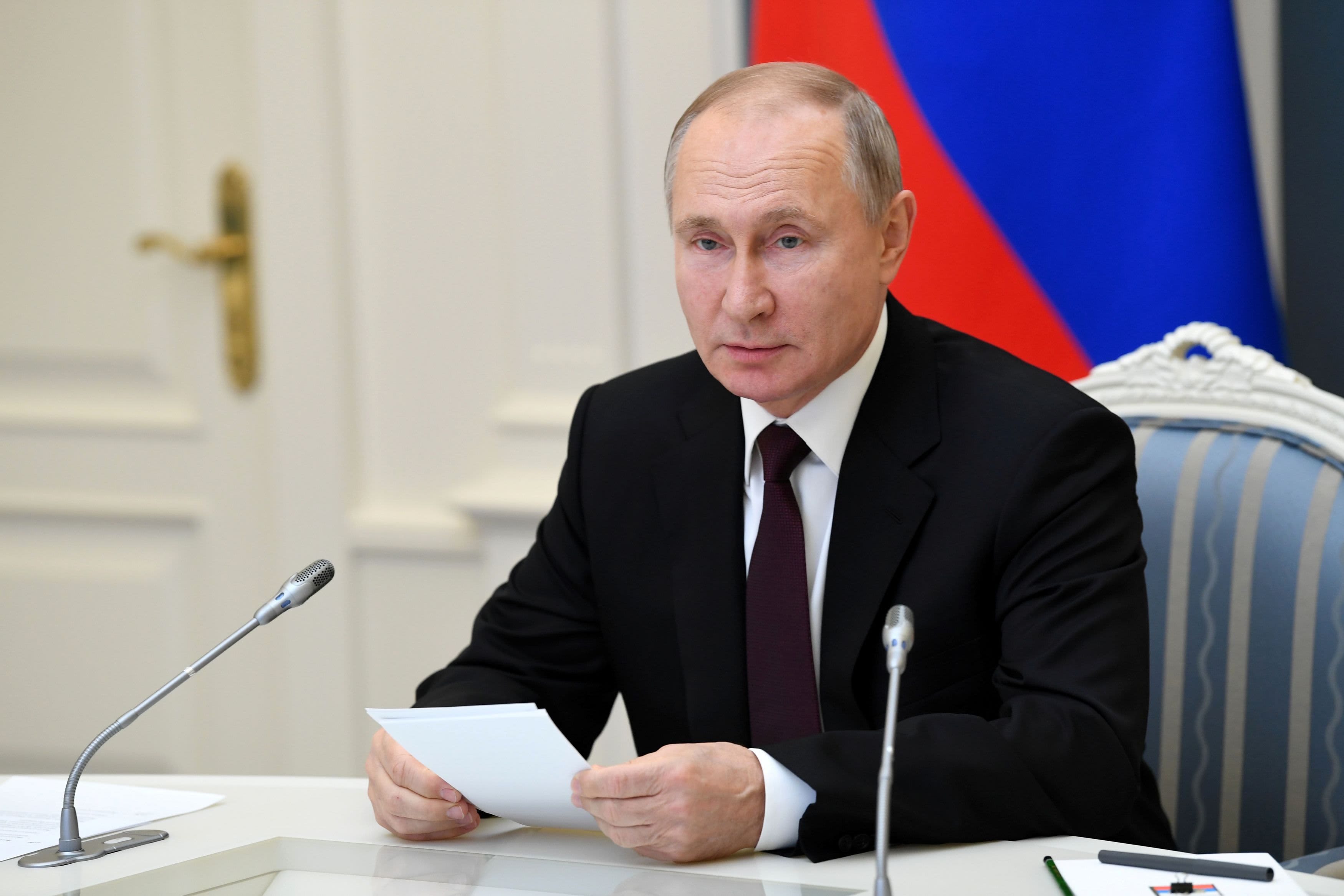Russia says it is slowing down Twitter to protect citizens from illegal content

Russian President Vladimir Putin.
Alexei Nikolsky | Reuters
Russia has announced that it is imposing restrictions on social media platform Twitter for failing to remove illegal content from its platform.
The Federal Communications, Information Technology, and Mass Communications Oversight Service, also known as Roskomnadzor, announced Wednesday that it is slowing down the speed of Twitter.
The communications watchdog said it was taking the measures to keep Russia’s citizens safe and that it could end up blocking the service completely if Twitter doesn’t respond accordingly.
Twitter did not immediately respond to CNBC’s request for comment.
Speeds will be reduced on all mobile devices and 50% of non-mobile devices, such as computers, Roskomnadzor said in a statement on its website.
Roskomnadzor accused Twitter of failing to remove content that encourages minors to commit suicide, as well as child pornography, and drug use.
The regulator said it asked Twitter to remove links and publications more than 28,000 times between 2017 and March 2021. It said that other social networks had been more co-operative than Twitter on removing content that encourages minors to commit suicide.
Russia’s move to throttle Twitter follows similar actions by governments in Turkey and India who have also threatened jail time for platform execs.
Matt Navara, a social media consultant, told CNBC that the “threat of restricting, blocking or banning social media platforms appears to be a growing trend for countries notorious for harsher, less democratic regimes.”
Social media platforms are in a constant battle to keep inappropriate content off their platforms. Facebook, TikTok, YouTube and Twitter all use a combination of software and human content moderators to police what gets shared on their platforms but none of them have truly mastered content moderation.
One of the most infamous recent examples was the Christchurch shooter who livestreamed his mass murder onto Facebook and other platforms. The video was quickly cloned and reshared by other users quicker than the content moderators could take it down and it could still be found on Facebook several weeks after the attack happened.